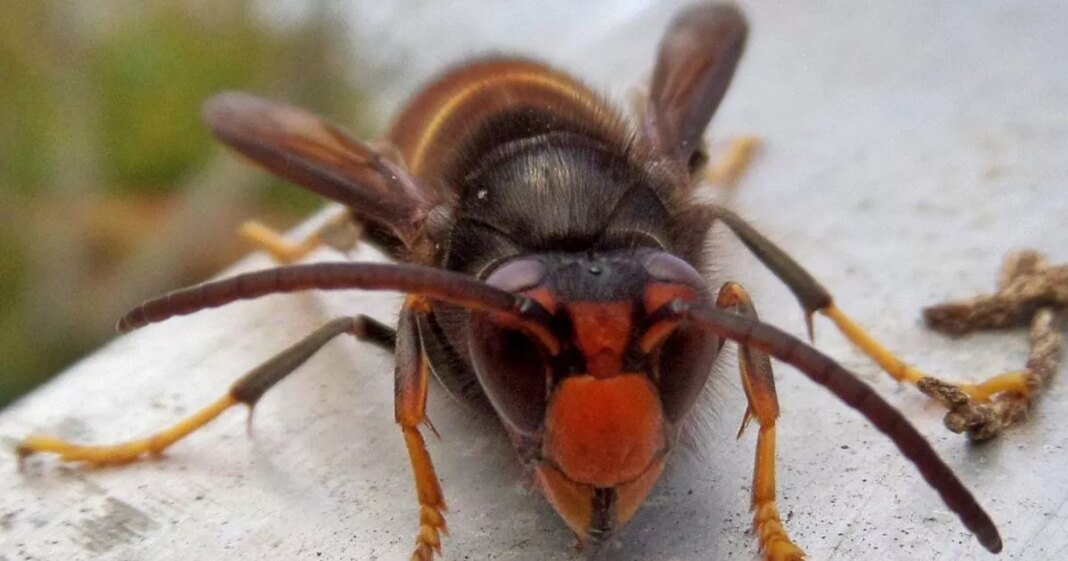Brits are being warned of an invasion of yellow-legged Asian hornets just days after a nest was found.
The British Beekeepers Association has confirmed a single hornet and embryo nest was discovered in Langley, Kent, on April 16, and now it is feared that “unprecedented” numbers could arrive in the country. The charity said the small nest would have been created by a queen and survived the winter – only the second year this has been recorded, reports said. It is the first nest to be confirmed in the UK but there have already been a few recorded sightings of the invasive creature in the southeast of Kent.
It was first spotted in the UK in 2016, but experts warned last year the invasive species had successfully overwintered in the UK for the first time. Earlier this month experts in Jersey reported an unprecedented number of early sightings, reports said.
Elsewhere in the country, sightings have been recorded around Southampton and Oswestry, Shropshire.
Ian Campbell, of the BBKA, said: “There’s a strong risk of this year’s numbers being at least as high as in 2023 and the potential to be even higher. It would be a surprise if numbers were not above the 2024 level.”
According to DEFRA, there have been 147 confirmed sightings of yellow-legged hornets in the UK since 2016. While the Asian hornet poses no greater risk to human health than native wasps and hornets, they do pose a huge risk to honey bees and insect pollinators.
One alone can kill between 60 to 90 honeybees per day, and dozens will “hawk” a hive at any one time by decimating the bees.
The insects have a distinctive appearance and can be identified by their very dark body and wide orange stripes on the fourth abdominal segment.
Native to Asia, their arrival in Europe was first recorded in France in 2004 when a hornet is thought to have arrived in a consignment of pottery from China.
In 2016, it was discovered in the UK for the very first time in Tetbury, Gloucestershire. The BBKA is now encouraging everyone to report any sightings using the Asian Hornet Watch app.
A BBKA spokesperson added: “It is important not to approach or disturb a nest, as although they are not generally aggressive towards people, they can be if they perceive a threat.”
At Reach and across our entities we and our partners use information collected through cookies and other identifiers from your device to improve experience on our site, analyse how it is used and to show personalised advertising. You can opt out of the sale or sharing of your data, at any time clicking the “Do Not Sell or Share my Data” button at the bottom of the webpage. Please note that your preferences are browser specific. Use of our website and any of our services represents your acceptance of the use of cookies and consent to the practices described in our Privacy Notice and Cookie Notice.



